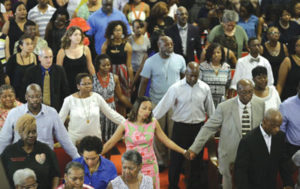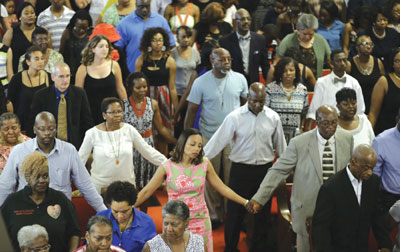 Countering Mental Health Stigma in the Black church
Countering Mental Health Stigma in the Black church
It’s been said that White people go to therapy and Black people go to church to deal with their emotional challenges. In many predominately African American faith communities — due to the lack of education — mental illness is seen as a sign of weakness or a form of punishment from God.
Asking for divine intervention through prayer is what some people use in their healing process. But is it enough to get well?
Audralina Sherman, a Christian with bipolar and substance use disorder, gave her testimony living with her condition during a mental health discussion at a recent event through the Montgomery County affiliate of the National Alliance for Mental Health (NAMI).
The alliance’s NAMIFaithnet initiative is an interfaith network of various clergy and congregations that encourage their communities to be supportive of people and families living with mental illnesses, particularly during July, which is National Minority Mental Health Month.
Sherman said while the church is one component of the healing process, that process, however, must be tailor-made for the individual. Seeing a psychologist or therapist can be beneficial on the road to recovery. There are options for receiving help from a mental health professional on a weekly, biweekly or monthly basis.
Sherman was the first person in her family to be diagnosed with a mental illness — a struggle for her family as well due to their lack of understanding. She did not let the negative opinions affect her.
It is important for the person with the illness to not feel broken, Sherman said.
“I have a strong faith and belief in God,” she said, adding that her family and friends were praying for her.

